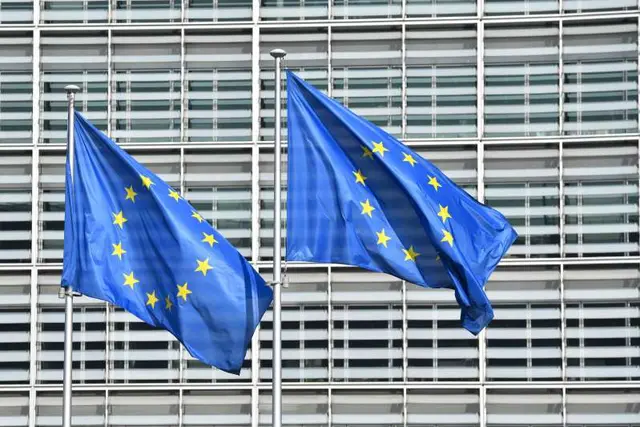The leaders of Poland and Hungary, who effectively vetoed the European Union’s $2 trillion spending package last week, are meeting as pressure builds on them to relent on their opposition to tying funding to upholding the rule of law.
Prime Minister Viktor Orban will host Polish counterpart Mateusz Morawiecki on Thursday in Budapest as the rest of the EU looks for any sign of compromise. The two leaders stopped the bloc’s coronavirus fund and seven-year budget in its tracks last week, delaying the flow of billions of euros in aid to virus-hit countries during the record economic downturn caused by Covid-19.
That’s not the most pressing issue for Hungary and Poland. Their governments are already under formal EU probes into whether they have violated the democratic norms, making them prime candidates for potential funding cuts in the future. The meeting is unlikely to provide a breakthrough as the two premiers don’t plan to draw up a counterproposal, according to a Polish government official who asked not to be named.
The standoff has left EU officials exasperated. Under the draft rule-of-law mechanism, a qualified majority of EU member states can approve sanctions based on the recommendation of the EU’s executive commission if they’re deemed to endanger the bloc’s financial interests. Those subject to sanctions would then have the right to appeal at the EU’s top court, something commission President Ursula von der Leyen underlined on Wednesday.
“That is the place where we usually thrash out differences of opinion regarding legal texts,” she told European Parliament members, in reference to the European Court of Justice. “And not at the expense of millions of Europeans waiting desperately for our help.”
Read More:
Poland and Hungary Stick to Their Veto on EU Stimulus FundsFrance Says EU Could Cut Hungary and Poland Out of Recovery FundRule-of-Law Report Worsens Spat Over EU’s Recovery Fund
Orban may already be in breach after a decade of consolidating power in Hungary, with the rights watchdog Freedom House no longer considering the nation a full-fledged democracy.
Tying billions of euros in funding to Orban’s rule-of-law track record may threaten his political survival, at least, that’s what he told German Chancellor Angela Merkel, whose country holds the rotating presidency of the EU, before vetoing the EU’s spending package earlier this month.
“I can tell you what I said to her,” he told the German weekly Die Zeit in an interview published Wednesday. “‘What you are asking me to do, Angela, is suicide’.”
Hungary and Poland have asked EU peers to reconsider aid conditions or at least to first agree on the spending and to later revisit the rule of law issue.
But that’s unacceptable for the rest of the bloc and especially for some net contributors to the EU budget, like The Netherlands, who have said the current compromise, reached after months of talks, was the minimum needed to protect the bloc’s funding and most basic values.
One idea making the rounds in Brussels is to end the ongoing Article 7 rule of law procedure against Hungary and Poland, in effect providing a clean slate before the new mechanism would kick in. It’s unclear whether that would be supported by EU or if it would suffice for the two eastern states to lift their veto.
Without a realistic counter-proposal from Budapest and Warsaw, and with time of the essence to deliver pandemic aid, there’s also the possibility of escalating the fight by adopting rule-of-law conditions for the EU budget by qualified majority and striking inter-governmental agreements for the 750 billion-euro coronavirus fund.
That would strip Hungary and Poland of their veto, since national parliaments have to consent to joint debt issuance to finance the virus fund, which in turn is linked to rule of conditionality and the EU budget.
Under this scenario, the new 1.07 trillion-euro EU budget would continue to be stuck. The bloc would operate under an emergency monthly budget, though the rule-of-law conditions would still apply.
(Bloomberg)
 简体中文
简体中文

